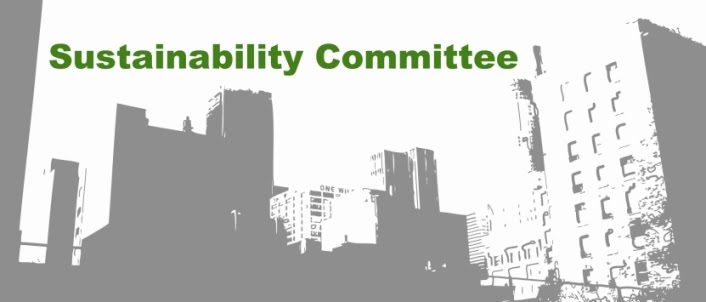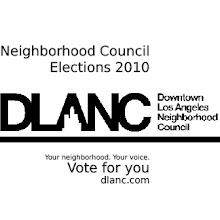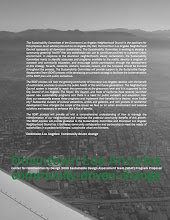The SDAT TEAM
The AIA SDAT grant provides $15,000 to bring a team of professionals to our community to help us address issues of sustainability as outlined in our project goals. The following team members have been confirmed as participants:
Walter Sedovic, AIA LEED AP SDAT Project Lead
Mr. Sedovic is Principal & CEO of Walter Sedovic Architects, established in 1986. Following his 10-year tenure with the National Park Service in Boston and New York, working with historical sites of national significance, he formed a highly specialized office, dedicated to historic preservation and sustainable design. The success of his firm’s approach is revealed in the consistent quality of its work since 1986; client satisfaction is demonstrated in the level of repeat business that the firm enjoys, particularly at sites where projects developed tend to be more comprehensive and complex. The firm’s numerous awards and media attention further attest to the respect and interest of its peers and the general population at large.
Mr. Sedovic received his professional degree at the University of Kansas and was selected as the U.S. representative for the Architectural Conservation program at the International Centre for Conservation in Rome, Italy (ICCROM). He holds multiple licenses and is NCARB-certified to practice in all 50 states. A LEED-Accredited Professional, Mr. Sedovic, who has been selected as guest editor for the APTI Bulletin Special Issue on Sustainability and Preservation scheduled for 2009, has lectured and published widely on the subject of sustainability and its symbiotic relationship with historic preservation. His paper, “History’s Green Genes,” first presented at the Second International Conference on Sustainability (Greenbuild ® 2003), explored the genesis of sustainable design found in traditional building practices and opened avenues for preservation professionals to become better acquainted with sustainability advocates, and vice versa. In the vanguard of incorporating sustainable design technologies into virtually every one of his firm’s preservation projects, the benefits of his vision and dedication are proving to have tangible and far-reaching effects.
Jane Jenkins Downtown Business Improvement Districts
Jane Jenkins is the new President and CEO of Downtown Oklahoma City, Incorporated. Previously, Jane was Executive Director of the Downtown Boulder Business Improvement District in Boulder, CO. With over 23 years experience in downtown revitalization and management, Jane is an internationally recognized speaker and expert on urban issues. She currently serves as Chairman for the International Downtown Association Board of Directors. As a former high school educator, Jane was named Teacher of the Year at Union High School in Tulsa, Oklahoma.
Ms. Jenkins earned a Bachelor’s Degree in Communication Arts Education from Oral Roberts University in Tulsa and a Master of Public Administration from the University of North Texas in Denton. She taught secondary school in Chandler and Tulsa before beginning her downtown management career in Wagoner, OK as the Main Street Manager. After serving in the same capacity in Pawhuska, Jane moved to Denton, Texas where she managed the downtown development program there for eight years before joining the staff of the National Trust for Historic Preservation as the Regional Director of the Southwest Office in Fort Worth, TX. She accepted the position as the first director of the Downtown Boulder Business Improvement District in 2000. Working through the National Main Street Center, Ms. Jenkins consults with many downtown programs across the US and Canada. She has also served on R/UDAT and SDAT teams for the AIA and been a member of IDA and ULI advisory panels.
Jim Diers Neighborhood Development & Governance
Participatory democracy has been Jim Diers’ preoccupation and career for the past 30 years. Mr. DIer moved to Seattle with his wife, Sarah Driggs, after graduating from Grinnell College in 1975 with a major in Colonialism and Nationalism in Third World Development. For six years Jim worked as an Alinsky-style community organizer in the low-income, racially diverse community of Rainier Valley. Bringing people together to take action on issues ranging from dangerous intersections to nuclear power plants, Jim helped the South End Seattle Community Organization grow to include 25 member churches and neighborhood organizations.
Mr. Diers spent the next six years with the Group Health Cooperative of Puget Sound, where he organized medical center councils to review budget and quality-of-care issues. In 1988, Mayor Charles Royer appointed Mr. Diers to direct Seattle’s new Office of Neighborhoods. he was reappointed by the subsequent mayors, Norm Rice in 1990 and Paul Schell in 1998. The Department supports $4.5 million Neighborhood Matching Fund and manages the City’s historic preservation program, a P-Patch Program of 75 community gardens, and a leadership training program.
Currently, Mr. Diers spends most of his time at the University of Washington, where he teaches courses in architecture and social work and supports community initiatives with faculty and students across all disciplines. Mr. Diers also speaks frequently in other cities as a faculty member for the Asset-Based Community Development Institute and as the author of Neighbor Power: Building Community the Seattle Way.
Mark McDaniel Neighborhood Revitalization
Mark McDaniel is senior research associate with the Center for Community Capital at the University of North Carolina. He consults with foundations, policymakers and others on strategies that help connect low-income populations to economic opportunities. These strategies include connecting neighborhoods to regional workforce opportunities, connecting the unbanked and underbanked to financial services and leveraging investment in low-income areas for housing, community facilities and other economic development opportunities. Mr. McDaniel brings a diverse set of experience in conceptualizing, designing and implementing initiatives intended to improve the socio-economic outcomes of low-income residents and the neighborhoods in which they reside.
He has demonstrated capacity in establishing and maintaining rapport with diverse constituencies including low-income community residents, public- and private-sector officials, direct service and policy practitioners, and evaluation/research professionals. Mr. McDaniel has particular interest in the economic challenges and pathways to opportunity taken by different subpopulations, including students, residents of public housing, youth and the formerly incarcerated. Mr. McDaniel has a B.A. in Geography from the University of North Carolina at Greensboro and a Master of City and Regional Planning from Morgan State University.
Eve Picker Urban Revitalization
Eve Picker’s expertise in inner city regeneration, specifically downtowns, has earned her much recognition in the Pittsburgh community at large, and nationally as well. Pittsburghers have called her their ‘folk hero’. Her professional interests lie in the redevelopment and revitalization of the inner City and its neighborhoods. Ms. Picker has led a varied professional career, as architect, city planner, urban designer, non-profit development specialist, real estate developer, publisher, event coordinator and economic development strategist.
After relocating to Pittsburgh, Ms. Picker became a senior urban designer at the City of Pittsburgh Planning Department at the same time launching a non-profit Community Development Corporation where she developed their first residential project and focused on the restoration of blighted buildings.
In 1997 Ms. Picker launched no wall productions, inc. She built an entrepreneurial real estate company focused on downtown and urban neighborhoods that others have ignored, transforming neglected buildings into highly desirable loft-style residences and offices, and using that experience to provide innovative consulting and marketing within her agenda of “all things urban”. In 2001 Ms. Picker launched we do property management, inc., to manage her portfolio, and to provide 3rd party management and brokerage services as well.
In early 2006, Ms. Picker launched an e-publication, Pop City, aimed at breaking the bad news cycle so typical of rust belt cities. In September 2007, she launched the cityLIVE! event series. Now heading into its third year, the purpose of the monthly series is to change the conversation about Pittsburgh and the region, and to expose creative and intellectual talent that the city owns, speak to its transformation and create a community of people interested in all things Pittsburgh.
Paula Reeves Bike/Pedestrian/Transportation
Paula Reeves has been developing transportation projects for the State, cities, counties, and transit agencies for seventeen years. She currently manages the Community Design Assistance Branch at Washington State Department of Transportation and serves on the Board of Directors for the American Planning Association Washington Chapter. In both these roles she provides a range of transportation planning and engineering services to cities, counties and transit agencies including: expert advise regarding transportation and livable communities, pedestrian and bicycle facility design expertise, safe routes to schools, scenic byways, and transportation planning support relative to Washington’s Growth Management Act.
Ms. Reeves has a broad transportation background that includes urban design, engineering, environmental experience, and is a trained mediator. She serves on the National Transportation Research Board’s Pedestrian Committee and the AASHTO committee responsible for developing national bicycle and pedestrian design guidance. She earned her master’s degree with engineering and law school course work in urban and regional planning from the University of Florida.
Sara Geddes Streetscape, Open Space & Sustainability
Sara Geddes, a graduate of the University of Oregon, is a Portland landscape architect in private practice with over 25 years of professional experience in Oregon and California. Her experience in urban, suburban and rural settings, located in valley wetland, high desert, chaparral, coastal, and inland environments has made her an expert at recognizing and responding to the unique character of places. She has planning and design expertise in a wide range of landscape architectural focus areas, including parks and open spaces, multi-modal transportation and streetscape corridors, educational and interpretive facilities, civic centers and commercial areas, neighborhoods, communities, and residential development including affordable housing.
In 1984 Ms. Geddes took a job at the Sea Ranch on the northern California coast as executive director of the architectural design committee, acting as liaison between the committee’s professionals, the board of directors, and the membership while overseeing development and landscape management along 10-miles of coastland. While there she also enjoyed her own private practice, designing coastal residences and working on the Mendocino Botanical Gardens master plan. In her more recent work with Satre Associates in Eugene, she has been project manager and lead designer, working in concert with owners, regulatory agencies, and consultant team members. As adjunct instructor at the University of Oregon, she has taught numerous design studios covering wetland interpretation, cluster housing, Native American culture, mass transit, botanical gardens, and open space. Ms. Geddes’s respect for the unique context of places, her passion for aesthetics and improving the quality of life, as well as her dedication to the sustainability of the natural and built environment are tenets that have guided her life and work throughout the years.
Robert Yakas, AIA Urban Design & Sustainability
With over 30 years in urban design, architecture, planning and transportation planning, in both the public and private sectors, Robert Yakas has led teams in all scales of community design projects. From individual site design to master planned residential communities utilizing Transit Oriented and Traditional Neighborhood Development strategies, He has worked successfully in the public and private sectors in short and long range planning, and on projects from concept through implementation. His international experience includes work in Mexico, Canada, Turkey, France, Japan and most recently in Johannesburg, South Africa.
As a leader of and key member of design teams Mr. Yakas has been involved in major development projects for towns and cities from Alaska to Florida; transportation projects in Washington, Oregon, California, Colorado and Utah, and has lectured and presented at forums for the American Planning Association and the National Light Rail Transit Conference. He was an adjunct professor in the department of Urban and Regional Planning at Portland State University for 12 years teaching all the core urban design and site design courses offered in the graduate curriculum.
Community Events Calendar
Send an event posting to sustainability@dlanc.com





